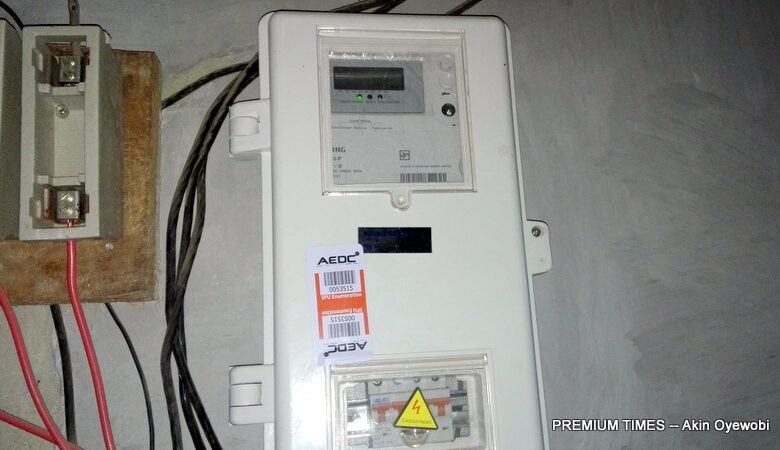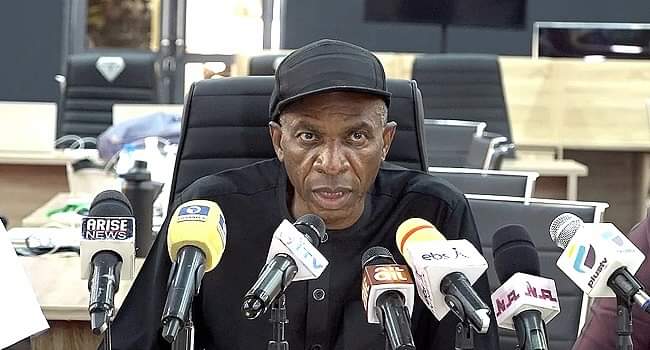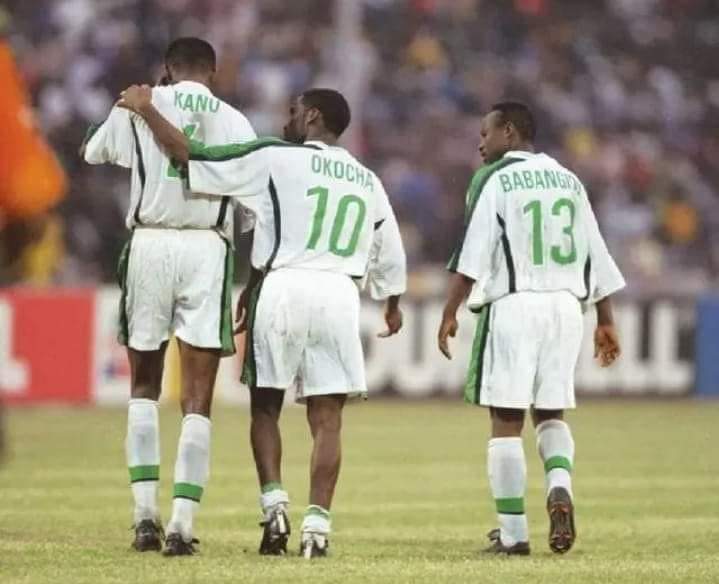Meters Prices Go Up As MAP Adjusts Rate After Bidding Process

Joseph Bakare
The Meter Asset Providers (MAP) have made adjustment in the unit price of electricity meters.
Under current prices the cost of a single-phase meter has risen from approximately N117,000 to as much as N149,800, depending on the distribution company and meter vendor.
The new prices, scheduled to take effect on Tuesday, November 5, 2024, reflect the deregulation of Meter Asset Providers (MAP) as directed by the Nigerian Electricity Regulatory Commission (NERC).
Our Correspondent reports that the NERC has deregulated prices of meters which allows meter providers to bid every 2 months in line with new regulations.
According to NERC’s latest order, meter prices under the MAP scheme will now be determined through competitive bidding rather than being centrally regulated.
This shift is expected to foster greater competition among meter providers, ultimately improving cost efficiency and service delivery for end-users.
In addition, the deregulation removes earlier operational restrictions, allowing MAP permit holders to provide metering services across all Electricity Distribution Companies (DisCos) in Nigeria. However, MAPs must meet specific regulatory requirements to ensure compliance and maintain quality standards in service delivery.
Previously, NERC regulated meter prices, which were often subsidized across all DisCos to reduce costs for customers. While this model aimed to make metering affordable, it inadvertently stifled competition and limited transparency in the supply chain.
As a result, DisCos and customers were unable to negotiate or explore better deals from meter vendors, contributing to inefficiencies in the system.
The General Manager, Corporate Communications and Strategy of Eko Electricity Distribution Company, Babatunde Lasaki, told our Correspondent that the DisCos uses four MAPs whose prices differ and the customer is entitled to chose from among them based on his choice.
Lasaki confirmed that the latest bidding was carried out on Tuesday and that pricing of meters are no longer under the control of DisCos.
With deregulation now in place, NERC anticipates a more dynamic metering ecosystem where customers and DisCos can benefit from competitive pricing, improved service quality, and greater accountability among meter providers.
This upward revision follows an earlier increase in August 2024, further amplifying concerns among electricity consumers about affordability and accessibility.
Lasaki, further explained that meter prices vary across DisCos, influenced by vendors and meter models (single-phase and three-phase). Below are the new average meter prices, inclusive of VAT.
Meanwhile electricity consumers have kicked against the development, describing it as unfair considering the economic hardship nationwide currently.
According to the Discos, the cost of a single-phase meter has risen from approximately N117,000 to as much as N149,800.
This amount indicates an increase of 28.03 per cent or N32,800, depending on the distribution company.
The new prices posted on the official X handle of the Discos on Wednesday were scheduled to take effect on Tuesday, November 5, 2024.
It also reflects the deregulation of meter asset providers as directed by the Nigerian Electricity Regulatory Commission.
This upward revision follows an earlier increase in August 2024, further amplifying concerns among electricity consumers about affordability and accessibility.
An analysis of the documents revealed that meter prices vary across Discos, influenced by vendors and meter models (single-phase and three-phase).
Eko Disco pegged the price of its single-phase meter between N135,987.5 and N161,035, while a three-phase meter was pegged between N226,600 and N266,600.
According to Ibadan Disco, customers will pay between N130,998 and N142,548 for a single-phase meter and N226,556.25–NN232,008 for a three-phase-meter.
Abuja DisCos said its customers will pay N123,130.53 – NN147,812.5 for single-phase meters and N206,345.65 – NN236,500 for three-phase meters.
Kano Electricity Distribution said its customers will pay N127,925–N129,999 for a single-phase meter and N223,793–NN235,425 for a three-phase meter.
Lastly, Kaduna Disco said N131,150 — N142,548.94 would be paid for single-phase meters and N220,375 — N232,008.04 for three-phase meters.
In April, the Nigerian Electricity Regulatory Commission introduced a significant policy shift by announcing the deregulation of meter prices under the Meter Asset Provider scheme for end-user customers.
The move was to address lingering issues surrounding meter supply and pricing transparency within the electricity sector.
According to NERC’s order, meter prices under the MAP scheme will now be determined through competitive bidding rather than being centralised.
This shift is expected to foster greater competition among meter providers, ultimately improving cost efficiency and service delivery for end users.
Additionally, the deregulation removes earlier operational restrictions, allowing MAP permit holders to provide metering services across all electricity distribution companies in Nigeria.
However, MAPs must meet specific regulatory requirements to ensure compliance and maintain quality standards in service delivery.
Previously, NERC regulated meter prices, which were often subsidised across all DisCos to reduce costs for customers. While this model aimed to make metering affordable, it inadvertently stifled competition and limited transparency in the supply chain.
As a result, Discos and customers were unable to negotiate or explore better deals from meter vendors, contributing to inefficiencies in the system.
With deregulation now in place, NERC anticipates a more dynamic metering ecosystem where customers and Discos can benefit from competitive pricing, improved service quality, and greater accountability among meter providers.
Meters are sold directly by the meter asset providers but the application will be done through Discos’ portals.
Some of the meter vendors are Mojec Asset Management Company, Wellsun Intelligent Technology, Gosslink Engineering, Turbo Energy Ltd, MBH Power, CIG Metering Assets, among others.
The meter asset providers had protested that the price approved by NERC was below the landing or production cost of the meters.
For days, meter application portals of the Discos were shut as the vendors refused to supply the product at a rate below its cost.





